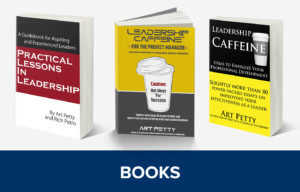If you or anyone close to you has ever experienced a panic attack, you know it’s a horrible experience. One friend described it to me as a feeling of overwhelming helplessness followed by a host of unpleasant physical symptoms. The career panic attack is similar and equally debilitating.
Signs of a Career Panic Attack:
Unfortunately, I’ve encountered more than a few individuals struggling with what they describe as panic attacks (or extreme anxiety) over their career prospects. This group includes CEOs, executives and experienced managers. When I ask them what’s running through their minds, I hear some variation of:
- I’m worried I will lose my job and I’m not sure what I will do next.
- I feel like I’m about to become obsolete in this world.
- I don’t have a Plan B if this doesn’t work out.
- I feel trapped.
- My career is more than half over, and I haven’t accomplished anything.
- I can’t keep doing this day in and day out.
- If I lose my job, I can’t afford to pay the bills.
- I need the health insurance, and if I lose this job, I don’t know what I’ll do.
Rational or not, these are genuine fears to these individuals.
I empathize a great deal with anyone suffering from career panic attacks. While you’re in this phase, there’s nothing healthy going on inside your brain. Rational thoughts and deliberate actions to improve your position are rudely shoved out of the way in favor of the chemicals tied to fear and panic.
Fear is the mind killer –Frank Herbert in Dune
While I am most definitely not a mental health professional, I have helped a number of people navigate career panic attacks. Most of these capable, wonderful people are somewhere in the middle of what should be some of their most productive working years. They have an acute sense of time passing them by, and they are experienced enough to know the world keeps changing and moving without concern for their needs.
The lessons we’ve learned together are worth considering for you or anyone you know struggling with this issue. (Nothing I suggest here precludes a person from reaching out for qualified help from a healthcare professional.)
4 Ideas to Help You Survive and Move On from a Career Panic Attack
1. Break out of the paralysis phase.
The fears become so mind and body numbing that the only thing that feels right is to do nothing.
Intellectually, we understand that action is necessary, but mentally and physically, it seems like too much effort. We’re not sure where to begin, so we do nothing. (This describes me when it comes to an overwhelming number of needed remodeling projects. In the absence of an idea on how to start, I sit.)
It’s imperative to take the first step. I like just about anything that involves movement, except for everyone’s first instinct: revise the resumé. In my experience, most people tackle this task by updating a few positions and adding a few job responsibilities and calling it finished. That’s a mistake.
Instead, I want you to reach back to trusted colleagues from your career, including former bosses, direct reports, and peers, and ask them the following questions:
- When we worked together, how did I help?
- When we worked together, how did I impact you?
- What would you say was my greatest strength during our time working together?
In every instance where clients have done this, the feedback has ranged from inspirational to remarkable. Most of us don’t understand the impact we have on others, yet these colleagues don’t forget.
While the exercise requires you to move beyond the awkward issue of asking for feedback on you, the output is priceless. It allows you to rethink what I describe as your professional value proposition and in some cases, it points to your superpower(s). The content is invaluable for your psyche, your resumé, and it often serves as starter material for rethinking your next steps.
2. Brainstorm on two courses of action.
The strategist in me rebels at the idea of not down-selecting to one choice, however, early in the process of recovering from a career panic attack is the worst time to make a hard choice on direction. You need to learn more about yourself and your options. My encouragement is to think about one radical career makeover and one that is bold, but not necessarily radical.
 Radical—work with a coach or trusted advisor to explore the convergence of your superpower with your passion. This is a hard target to discover for many, but worth the exploration. More often than not, the superpower is not functional in nature—it’s a soft or creative skill, and once you recognize this reality, you can start thinking beyond the confines of your current role. The passion issue is one I like to explore as part of my process of helping individuals discover what it means for them to be at their best. (See my article: Revisiting What It Takes to Become You at Your Best.)
Radical—work with a coach or trusted advisor to explore the convergence of your superpower with your passion. This is a hard target to discover for many, but worth the exploration. More often than not, the superpower is not functional in nature—it’s a soft or creative skill, and once you recognize this reality, you can start thinking beyond the confines of your current role. The passion issue is one I like to explore as part of my process of helping individuals discover what it means for them to be at their best. (See my article: Revisiting What It Takes to Become You at Your Best.)
While issues of marketability and practicality are important later in the phase, it’s imperative to cast a wide net on how you might apply your passion and skills, and not so important early to think about how you’ll get there.
Bold—similar to the radical approach outlined above, I want you to think about your core skills and superpower(s) and what you like about your work. Upon closer inspection, many people recognize that they truly do love aspects of their work. They might hold the boss in contempt or not like the organization’s culture, but they value the opportunity to help others.
Armed with this recognition, I help individuals think through different ways to manifest the work they enjoy in various organizations inside or outside of their industry. I’ve had clients remain in the industry but after ensuring there were no legal barriers, shift their place of employment to a partner, distributor, or supplier and revitalize their excitement for their work.
The reason for exploring the two options in parallel is to help the individual assess what it is that is creating the career panic attack. In some cases, it is an unyielding need to do something different. In others, a change in environment and view often becomes the more practical solution. If the radical path is preferable, a whole host of practical questions must be answered, including what is the most plausible path to getting there without taking on undue risk?
3. Give Yourself Permission to Explore.
A client of mine wanted to open a restaurant. She talked with as many people as she could find in the business and realized she wasn’t up to the work and risk.
 Another client was interested in moving from a subject matter expert in her firm to a consultant in the larger industry.After learning about the realities of making this transition, she took two years to hoard cash, improve her visibility through blogging, and quietly develop a list of prospective clients. She made the transition successfully and has never looked back.
Another client was interested in moving from a subject matter expert in her firm to a consultant in the larger industry.After learning about the realities of making this transition, she took two years to hoard cash, improve her visibility through blogging, and quietly develop a list of prospective clients. She made the transition successfully and has never looked back.
A current client is exploring a cool, and we perceive marketable convergence of her passions and superpowers through a training offering. The way forward isn’t yet clear. However, she is in the exploration phase and busy talking with people while striving to refine her ideas. A wholesale shift isn’t in the cards, however, over time, this might be the opportunity for her to redefine herself in a career that taps into her at her best.
The exploration phase—talking with people outside of your normal environment and in places you potentially see yourself is incredibly valuable. What appears romantic and exciting can prove to be mundane in reality. Or, it can be what you expected and more. However, you have to engage. Give yourself permission to explore!
4. Education and Training.
A good number of individuals who feel lost in their careers end up back in classrooms completing unfinished degrees or pursuing the next level in their academic careers. I have mixed feelings on this, which is odd I suppose, given my work as a graduate management educator and my obsession with learning.
I differentiate general education in a college setting from specific skills training. If you want to go to code camp to learn how to code, or if you are a technical, quality, safety, project or any type of professional and want to expand your knowledge and certifications, great! However, generic degree-focused education can often be a distraction that feels right at the moment but doesn’t solve the career dilemma. And, it is expensive. Be careful.
I love education for a purpose when navigating a career crisis. What I find unhealthy, is using education as a tool to forestall having to think through the issues of what to do next. This slightly cynical sounding perspective comes from having worked with a few too many people who opted to finish a degree or pursue an advanced degree, and then ended up back at the starting point of What next? Yes, the degree offers an admission ticket to something. It is a solid accomplishment. However, it doesn’t absolve you of the need to ask and answer the hard questions.
Pursue education with a purpose.
The Bottom-Line for Now:
This is a big, personal, important topic and I’ve barely scratched the surface. The starter ideas work, and I’ve learned over time that giving locomotion to ideas is mission critical in stemming the career panic attack(s). It’s part journey of self-discovery (or rediscovery) and part journey of exploration.
You cannot slow down the clock or calendar, nor can you stem the tide of change that renders much of our acquired technical knowledge obsolete. However, you can modify the rules of the game for you. It starts with getting up off the couch and moving.
—








Can so relate to this! I look at my (quite honestly pretty awesome) resume and it doesn’t match with how I’m feeling inside. Between a recent unexpected layoff from a super duper stressful executive position and landing in a completely new industry with a big step down in pay and a small backward step down in position, my confidence feels permanently squashed. Sigh – humility is a good thing and I love all of your articles to motivate and inspire. This is great advice and I’ll take it to heart. Thanks!
Cynthia, thank you for reading and responding. It sounds like your resilience is high and I know from long experience that confidence squashing is temporary until you find that next right adventure. I’m honored to have you reading and glad the words might help a bit. Keep pushing! -Art
Awesome thoughts that deliver a powerful, knock-out punch to our midlife career’s panicky predicaments!
Thanks Raymond! It’s always the goal to help. It is indeed a tough topic for anyone navigating through the panic. I appreciate your reading and commenting! -Art